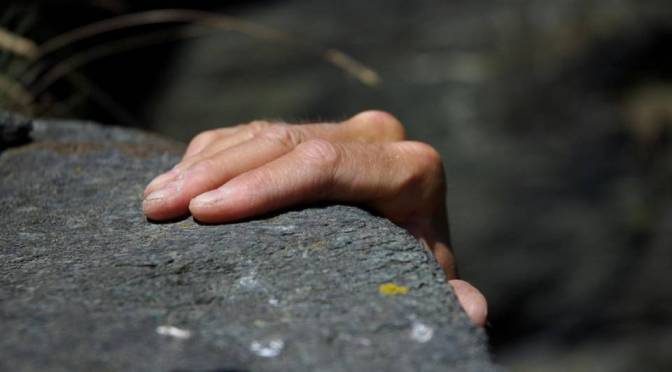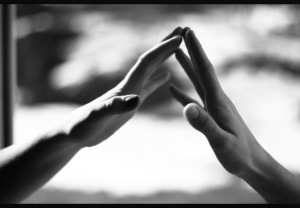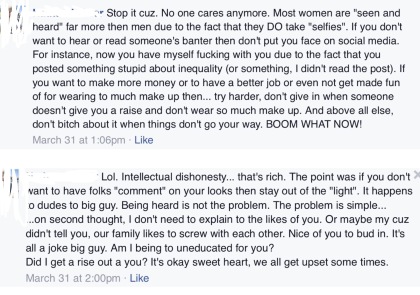Crisis. An interesting word when you hear it or speak it over and over again to yourself in a short period of time, am I in crisis? I am in a crisis. A mental health crisis, meaning, a moment in time where I am a potential danger to myself, if not others. A moment in which my ability to make sound decisions has come into question. A crisis of consciousness — as in I have TOO MUCH OF IT on account of the fact that I very much want to not exist anymore, not now, not in this moment. I don’t want to be here anymore.
The first year after we lost my stepfather, I would wake up in the apartment that I shared with my mom, his wife, where we lived together still surrounded by his things and when she was in crisis I would sit with her until it passed. In the year after her death, I would be in significant moments of crisis as my boyfriend slumbered peacefully in the bed beside me as I sunk to floor in the cold moonlight and desperately tried to make peace with the sudden terrible desire to die, hating him a little bit for being oblivious to the tempest raging in the room beside him. And now I am here: hours post-triggering event, still slowly circling the drain of my consciousness just waiting to fall off the edge into what? I don’t know. It never occurred to me to care aside from my literary sensibilities warning me away from the phrase “into oblivion” — if you must be crazy, try not be be crazy and also a cliche. Make no mistake, though, that is what I want: nothingness. Perhaps not forever, but just until the storm, this “crisis” passes.
Even if the crisis never passes because it is ME I am the critical component here and the harbinger of my own descent into madness. I am the failure. I am the reason for my own sadness.
I just want to hurt in a way that I can see and touch. A pain that I can feel on the inside and the outside. I want to grasp something tangible and say THIS. This hurts, it is injured and it gives me pain and because I can touch it with my hands not only am I positive that it is real and that it is there, but I am also confident that it will heal someday. It’s a strange sort of drive that makes a person want to harm themselves — mostly, I think, it is the innate desire to have one’s insides match their outsides.
In the middle of the storm, I recorded a few of my racing thoughts. The state of crisis lasted for a few days, which felt bizarre at the time. I think that I have often considered a “crisis” to be a singular moment of tragedy, a precipitating event for a Before and an After. However, after this crisis was triggered, I saw that it bloomed into a complete mental and physical state that took several days to subside. Days during which I didn’t know exactly where I was, except for the few brief moments of clarity and presentness that punctuated the dark.
I caused myself physical harm in that time. Self-harm has been a constant blip on my radar for years, but it’s been manageable. During my crisis, the desire to self-harm bowled me over, seducing me with promises of equilibrium. Where I once felt that I was spinning out of control, my focus narrowed and concentrated on a single point in time, a singular feeling of physical pain that obliterates all other sensation from my mind. In that moment, it was a welcome reprieve, but in the bright light of day I was disappointed and ashamed of myself — not only because I had resorted to self-harm, but because I had allowed myself to be triggered and suffer a crisis at all.
I like to envision myself as fairly invincible. I frequently imagine myself in horrible situations and think myself through the step-by-step reactions I would deploy to control and ultimately survive the situation. In my own mind, I am capable of withstanding absolutely anything. In life, however, I find myself wanting. It becomes clear to me that I am not, in fact, invincible.. I am actually vulnerable and weak, and in many ways, defunct.
I can’t get pregnant. My body seems to have forgotten how to make itself a host for a new life. Despite trying for over a year, we’ve come no closer to growing our family, and I know that it’s my fault. I can’t get pregnant and my heart is broken. This isn’t how it was supposed to be. I think back to all those times as a teenager, my girlfriends and I taking turns with the awful possibility that we had gotten in trouble. Too young to be mothers, so we prayed and prayed please God don’t let me be pregnant. Now all the manic energy that went into counting the days until we bled has been translated into a deep emotional clenching trying to hold it in and support a life that we are desperate to give birth to. There was a genetic legacy that I was rather depending on, that I have since been discouraged from cashing in. None of the women in my family have been infertile; at least, not that I’m aware of. One of the last things my mother ever told me what was a good mother I would be someday, speculating how easy for me it would be to get pregnant once I was ready, and I believed her, of course, because mother knows best.
So now a new crisis: a crisis of faith. Ever the believer, ever the hopeless optimistic, I’ve not yet given up the dream. But it has cost me no small measure of peace to hold on with such determination, as if I could, by sheer force of will, make myself conceive. It’s ridiculous. I am no Mary and there is no reason to expect Divine Intervention. After all, it’s not exactly uncommon. Secondary infertility, the inability to become pregnant despite previous successes, happens to a fair share of women. Though if I’m honest with my myself, the birth of our daughter nearly three years ago is truly nothing short of a miracle. We struggled to get pregnant, and I struggled to carry her past those first tremulous weeks where it seemed all too likely that she would just slip away, out of my body and out of existence. It would appear that Moira, fated to be born, was the exception, and that my wasted body, this useless mass of flesh, has no miracles left to give.
Every wretched cramp that twists my insides, every drop of wasted blood, every excited announcement of another woman’s fecundity is a thorn in my side. Salt in the wound. I am so angry, I want to scream at someone. I want to make another person feel as hurt, as dispossessed as I feel. I want to give this grief a name and a purpose and to make this pain wearable, apparent. I want everyone to know I’m a fucking open wound, just walking around, waiting to hurt.
And then, the guilt. As I’m reeling through these feelings of loss and failure, a part of me comes to attention to remind me, with cruel alacrity, that I am not, in fact, as disenfranchised as I may feel. I have a beautiful daughter. I have a wonderful career that I love, and a family that loves me, and there are starving people in China, for crissakes, so what’s your fucking problem? You are not a victim. I am not a victim of anything or anyone except myself. I ought to be focusing in on the good things in my life with humility and gratitude. After all, there are scores of women out there, some of whom are close friends, who have been unable to conceive at all. At least I have one child. One perfect, lovely, intelligent, beautiful child. I shouldn’t be so selfish, so greedy, as to wish for more.
But it just isn’t fair. Perhaps it’s the Libra in me, this constant preoccupation with fairness that so brutally trips me up when life becomes chaotic and unreasonable, as it is wont to do. Life isn’t fair, of course, and I know that. But I’m stubbornly resistant to the notion, unwilling to capitulate to fate. I reckon that if I do everything right — if I eat right, I exercise, I keep healthy, I take my vitamins; whatever — if I do all the right things, then I ought to get the outcome that I want. That’s how we’re often taught to look at problems, excepting for those insurmountable challenges that are so far out of our hands that we are instead told that it’s God, or the Universe, or Fate, that will decide. Just be patient. Relax. Whatever is meant to be will be.
What rubbish.
I am, or at least, I have considered myself to be, a spiritual person, but instances like this test my faith. It incenses me to hear that “God has a plan” or “You never know what the Universe has in store for you.” Bullshit. I have plans. My plans aren’t good enough for God? The Universe is withholding my happiness from me because It knows better? Ridiculous!
These are the uncharitable, heathenous thoughts that intrude upon me every waking moment. I am painfully aware of how unreasonable my sadness and frustration have made me. As this writing has proven, I vacillate between petulance and shame frequently. I am struggling to float, let alone rise above the tide. Yes, I ought to deploy some focused gratitude, and center myself around what is really important. Yes, I am at the mercy of my biochemistry in some respects, but I am responsible for how I respond to the changes in the tide. I am aware of these truths and more, but the sadness and disappointment are indefatigable and merciless. I am as trapped within my spotty mind as I am within my troubled body. What is broken cannot always be mended.

















